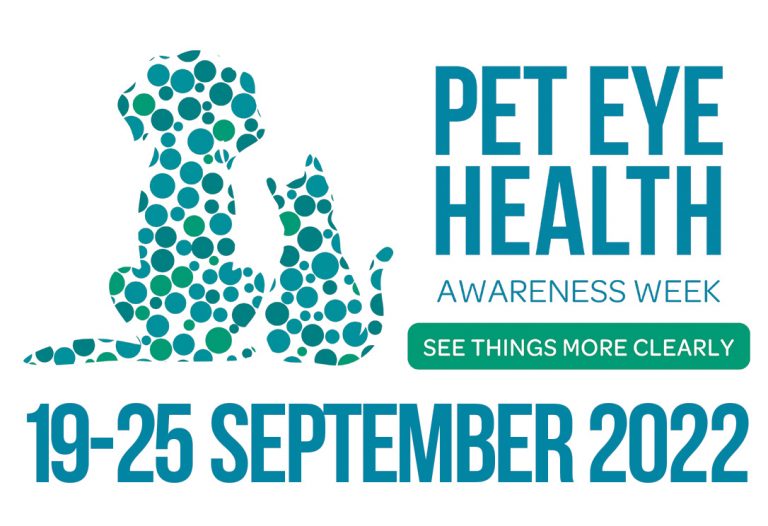
We’re proud to be taking part in TVM’s annual Pet Eye Health Awareness Week (19th – 25th September 2022), which this year, is focused on brachycephalic breeds and their increased risk of eye problems.
Just like us humans, your pet’s eyes are an extremely important part of their health and wellbeing. Eye problems can be painful and, if left untreated, may result in sight loss. They can also be a symptom of an underlying medical condition, which is why understanding the symptoms and booking an appointment to see your vet as early as possible is essential.
Brachycephalic ocular syndrome (BOS) is the term used to describe a combination of conditions that result in poor eye health in short-nosed dogs and cats. This includes dog breeds such as; Pugs, French Bulldogs, English Bulldogs, Boston Terriers, Lhasa Apsos, Shih Tzus, Cavalier King Charles Spaniels, Boxers; and Persian and Exotic/British Shorthair cats.
Their predisposition to eye problems is due to anatomical skull changes which often result in shallow eye sockets (meaning they have prominent, ‘bulging’ eyes) and eyelid abnormalities, among other things.
Any changes to your pet’s eyes could be a sign of a problem. To help, TVM has developed a handy guide with some specific symptoms to look out for.
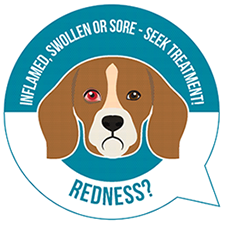
Your pet’s eyes are as sensitive as your own, so they can be just as susceptible to irritation, allergies, disease and injury. Redness is commonly due to inflammation and can be accompanied by discharge, irritation and swelling.
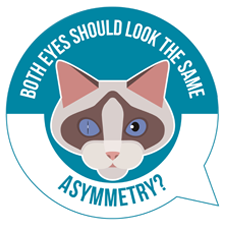
Do both of your pet’s eyes look the same? Are the face and head symmetrical when comparing left to right? Any sudden or gradual change in appearance between the eyes could indicate an issue, including differences in shape, size and colour.
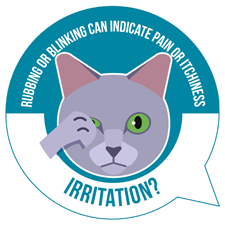
Did you know that the cornea has around 20-40 times more nerve endings than the root of your tooth? And we all know how painful tooth ache is!
Signs of eye irritation to look out for include:
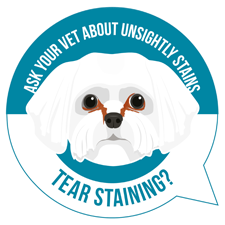
Tear stains are the reddish-brown marks that you may find on the fur around your pet’s eyes, especially if they have a pale coat. In most cases, the stains are cosmetic and can be removed with eye cleansers; however, it may also be a sign of an underlying problem and should be checked by your vet to be sure.
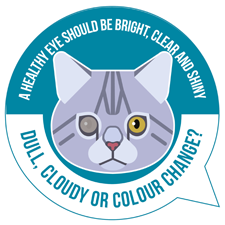
Your pet’s eyes should be bright, clear and shiny – if they suddenly look cloudy or opaque, this could be a sign of a problem that needs to be checked by your vet. Some common conditions that can cause cloudiness include cataracts and dry eye.
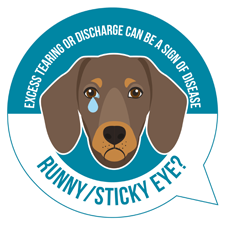
Eye discharge is a common problem in pets, ranging from watery to sticky/thick and in a variety of colours (clear, yellow, green, brown, red). While a little gunk can be normal, there are some more serious conditions that it may be a symptom of. As always, it’s best to consult your vet if you notice any discharge, just to make sure.
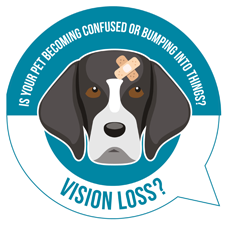
Loss of vision for your pet can be sudden or gradual, depending on the cause. It can be hard to spot as their other senses (such as smell and hearing) are much more heightened than ours and will often compensate for the loss of sight.
If you find your pet is regularly bumping into things, it could be a sign to get their eyes checked by a vet. They may also become more clingy with you as they look for comfort and guidance as their vision decreases.
If you notice any changes to your pet’s eyes, it’s always worth checking with your vet to be on the safe side.
If you have any concerns about your pet, please get in touch with your local St Kitts practice.
St Kitts Veterinary Centre: 01252 844044
Basingstoke Veterinary Centre: 01256 844944
Crookham Park Veterinary Centre: 01252 913990
Firgrove Veterinary Centre: 01252 877799